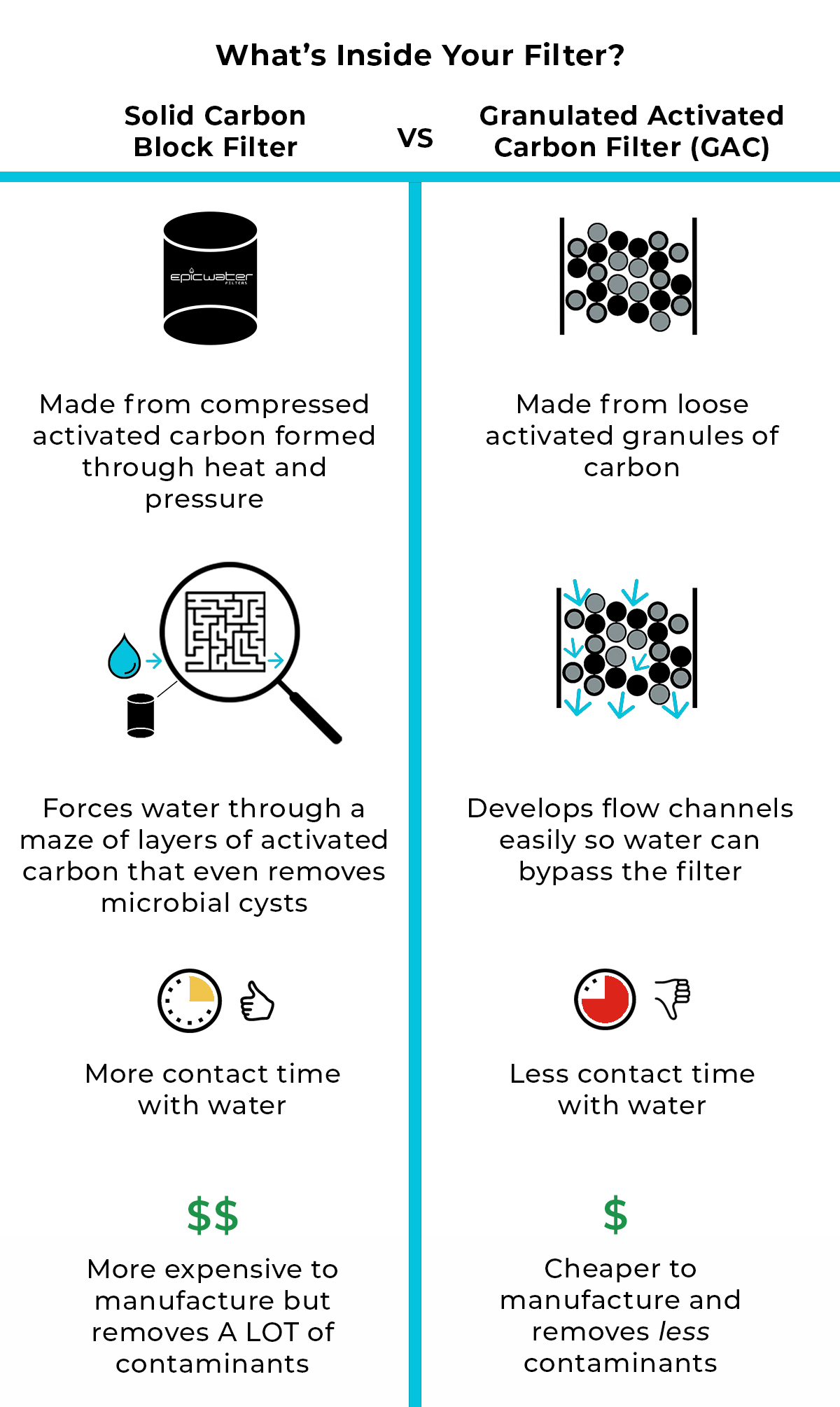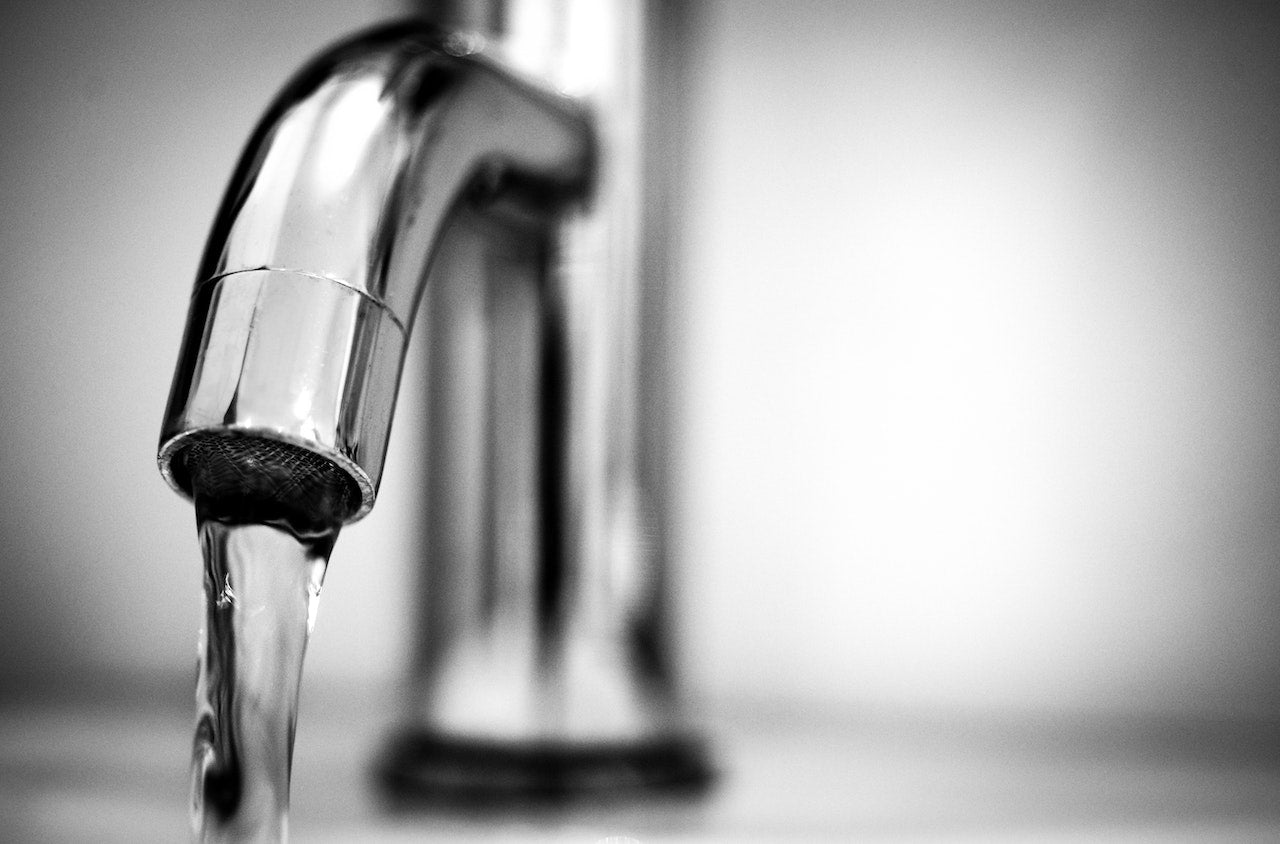Tap Water vs Brita

Clean drinking water is essential to our health and well-being, but unfortunately, not all tap water in the United States is created equal. Despite regulations set in place to protect the public from harmful contaminants, many cities and towns still struggle with providing safe drinking water to their residents.
Contaminants in Tap Water
According to the Environmental Protection Agency (EPA), there are over 90 contaminants commonly found in drinking water but those are the only ones the EPA is looking for. There are literally 1000s of potential contaminants that are not screened for during testing. Some of the most concerning include lead, arsenic, mercury, fluoride and chlorine. Lead, for example, can cause serious health problems, particularly in children and pregnant women. Long-term exposure to lead and fluoride can lead to developmental delays, learning difficulties, and even lower IQ levels.
Arsenic is another contaminant found in tap water that can cause serious health problems. Exposure to high levels of arsenic can lead to skin damage, circulatory problems, and an increased risk of cancer. Mercury, a neurotoxin, can also have serious health consequences, particularly in pregnant women and young children.
Chlorine is often added to tap water to disinfect it, but it can also create harmful byproducts when it interacts with organic matter which is found in the water naturally. Trihalomethanes (THMs), for example, are known carcinogens that can form when chlorine reacts with organic matter in water. Trihalomethanes have been linked to several forms of cancer.

Drinking water pipes

Old Pipes and Water Contamination
Another issue that can contribute to tap water contamination is old pipes. Many cities and towns across the country have aging water infrastructure that can compromise the quality of tap water. Old pipes can leach harmful contaminants into the water supply, particularly lead. Lead pipes were commonly used in homes built before 1986, and even homes built after that time may have lead solder connecting copper pipes.
When water sits in these pipes for extended periods, such as overnight or during the day when people are at work or school, the lead can leach into the water supply, leading to dangerous levels of lead in the tap water.
Polyvinyl chloride (PVC) pipes are commonly used in modern plumbing systems due to their affordability, durability, and ease of installation. However, the use of PVC pipes in the transportation of water can pose several risks to human health and the environment according to several studies. PVC pipes can leach toxic chemicals such as vinyl chloride, cadmium, and phthalates into the water, especially when exposed to high temperatures or acidic water. They have also been found to leach Total Organic Carbon. These chemicals and organic matter have been linked to various health problems such as developmental and reproductive disorders, liver damage, and cancer. Therefore, it is crucial to ensure that PVC pipes are used and installed properly to prevent the leaching of harmful chemicals into the water supply.
does brita make tap water healthier?
Although tap water is a convenient and affordable option for hydrating, many people worry about the presence of contaminants. To address this concern, some people opt to use a standard Brita water filter pitcher. However, it's crucial to recognize the limitations of this popular filter. Brita pitchers generally use granular activated carbon filters (GAC), which are known in the water filtration industry as the cheapest and least effective method for removing contaminants.
While they can remove some impurities by trapping them in the carbon particles, Brita filters are not capable of removing all types of contaminants. Furthermore, their efficacy can vary depending on the quality of your tap water. If you are looking for high levels of contaminant removal in water pitcher, look filters with solid carbon fiber blocks. These types of filters remove much more contaminants but they filter at a slower speed.

truth about brita filters

The truth is, Brita pitchers are not effective at removing contaminants such as fluoride and arsenic, which can be present in tap water. They also do not remove bacteria, viruses or microbial cysts which can pose a serious health risk in some areas (Have you had a boil water alert in your area? That is usually due to some type of bacteria virus or cysts in your water).
If you are concerned about these types of contaminants in your tap water, a standard Brita pitcher may not be the best option for you. In addition, it's important to note that Brita filters have a limited lifespan. They typically need to be replaced every 40 gallons or two months, whichever comes first. If you have a larger household or use a lot of water, you may find yourself needing to replace the filter more frequently, which can become costly and inconvenient over time.
If you're looking for a reliable and effective way to filter your tap water, the Epic Water Filters Pure pitcher with solid carbon fiber block technology is the answer. Unlike other water filter pitchers that use granular activated carbon filters, the Epic Pure pitcher employs a superior filtration system that eliminates 99.99% of tap water contaminants. The solid carbon fiber block technology ensures that every drop of water that passes through the filter is purified, making it the best choice for those who demand the highest level of purity in their drinking water.
Additionally, the Epic Pure pitcher is made of premium materials, which ensures that it will last for a long time. So, if you're looking for an easy and cost-effective way to ensure that your tap water is free of contaminants and safe to drink, the Epic Water Filters Pure pitcher with solid carbon fiber block technology is the perfect solution for you!

Why Epic? We have a dream: a world where everyone can have access to clean, healthy drinking water no matter where they are. We believe that water filtration technology should be top-notch, affordable, and good for the planet. With our products, you can take control of your water quality and feel confident that you and your loved ones are drinking the best water possible. Let's make our dream a reality together!






Share:
Tap Water vs Bottled Water
Legionella In Water